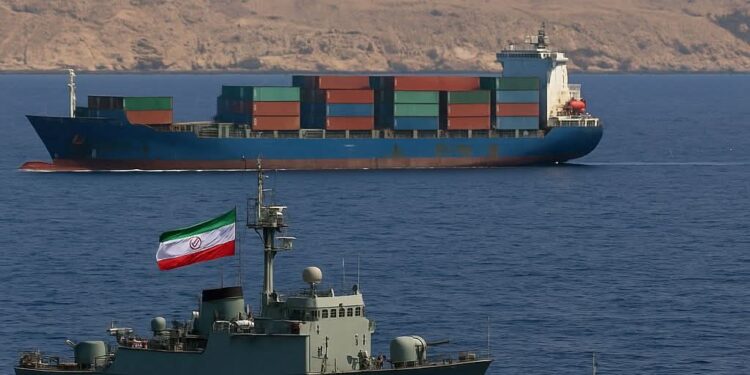In its first on-the-ground response to the attacks launched by the US Air Force this morning on three nuclear facilities in Tehran using stealth aircraft and bunker-buster bombs, the Iranian Parliament announced its approval to close the Strait of Hormuz as an escalatory measure against the “Israeli-American war on Iran,” as reported by Reuters.
Reuters further confirmed that the Iranian Parliament indicated the decision to close the Strait of Hormuz is contingent on the approval of the Iranian Supreme National Security Council.
Impact of Closing the Strait of Hormuz
The Strait of Hormuz is one of the most important and vital waterways in the world, with its significance stemming from several crucial aspects:
* Global Oil Lifeline: A very large proportion of crude oil, condensates, and liquefied natural gas (LNG) exported from the Arabian Gulf countries (Saudi Arabia, Iraq, Kuwait, UAE, Qatar, and Iran) passes through it. Approximately 16.5 million barrels of oil and condensates and more than one-fifth of the world’s LNG supplies pass through daily, making it a critical maritime chokepoint for global energy security.
* Sole Outlet for Some Nations: For countries like Iraq, Kuwait, Bahrain, and Qatar, the Strait of Hormuz is the only maritime outlet for exporting their oil, gas, and other products to global markets.
* Crucial for Asian Exports: The majority of oil exports passing through the Strait (about 82%) head to major Asian countries like China, India, Japan, and South Korea, making it vital for their economies. In addition to oil and gas, a significant proportion of other basic commodities such as grain, iron ore, and cement also pass through the Strait.
Global Security Implications
The Strait is a sensitive point for global security. Any political or military escalation there would quickly trigger a rapid global economic crisis through soaring oil prices and the disruption of global supply chains.
Iran has aimed to use it as a strategic pressure card. According to Dr. Mohammed Wazzan, a researcher in political and strategic studies, the Iranian Parliament’s announcement to close the Strait of Hormuz is an extremely dangerous development, as it affects one of the world’s most important arteries for trade and energy.
Wazzan views Iran’s response to close the Strait of Hormuz not merely as a military countermeasure but as a direct economic and geopolitical escalation against the entire world. He notes that nearly 20% of global oil trade passes through the Strait daily, and any tension there could ignite energy prices and severely impact global markets from Asia to Europe.
Researcher Mohammed Wazzan explained that Iran’s retaliation might not be limited to missiles or drones but could also be economic and strategic, threatening the stability of the entire region.












